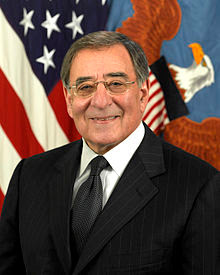Shangri-La Dialogue: Reflections On Leon Panetta’s Address – Analysis
By IPCS
By Tanvi Kulkarni
At the 11th IISS Asian Security Summit: The Shangri-la Dialogue (SLD), the US Secretary of Defense, Leon Panetta, spoke on ‘The US rebalance towards the Asia-Pacific’. The speech was filled with powerful rhetoric and dramatic punch-lines. This commentary is a reflection on Panetta’s address at the dialogue’s first plenary session.
Full marks to the Obama administration for coming up with innovative terminologies and expressions. From President Obama’s own ‘Asian Pivot’ to Secretary of State, Hillary Clinton’s ‘America’s Pacific Century’, and now to Leon Panetta’s ‘US rebalance towards the Asia-Pacific’, the democratic administration has undertaken the construction of a whole new lexicon to sell the latest policy of shifting focus to the Asia-Pacific region. Panetta’s address was focused on the US defense policy and strategy towards the Asia-Pacific.

The articulation of this strategy as one of ‘rebalancing’ is worth probing. Rebalancing strategies are popularly used in the banking and investment sectors with the aim of re-allocating resources, assets or investments, which have gone astray over a period of time, into portfolios that they were originally meant for. To use this analogy, the US has always considered the Asia-Pacific to be important for the consolidation of global power. This would also mean a shift from the offshore balancing strategies that became the cornerstone of American policy in the Asia-Pacific, and particularly against the rise of Chinese power in the region in the aftermath of the Cold War. Although a status-quoist power, the US has never been referred to as an ‘Eastern power’. In terms of military force projection (one of the shared principles that Panetta enumerates), rebalancing has been explained as in fact tilting the balance in favour of the force strength in the Pacific Ocean. The US Navy would now dedicate 60 per cent of its force to the Pacific Ocean region, instead of the previous split of 50-50 per cent between the Atlantic and Pacific oceans.
It is anybody’s guess how much China has been factored into the making of this new policy. Taking on a direct question on this point, Panetta said that the US was not ‘naïve’ about its relations with China and yet believed in building mutual trust through increased communication. However, by projecting itself to be indispensible to the Asian peace, prosperity and security, the US is instilling fear of and resistance towards the destabilizing effects of China’s growing power. Panetta’s speech is resplendent with references to China (without naming the country at all times), be it with reference to the South China Sea dispute, upholding the established rules of the game, the need to establish new bases in Japan and Australia or with reference to Taiwan. In his address, Panetta is almost dismissive of the North Korean threat as one of the rationale for increased US involvement in East Asia. While, this is disappointing from an analytical perspective, it is presently anathema to the US’ success ratio in the case.
The tenor of Panetta’s talk was meant to be reassuring. But given national-cultural differences in the way statements are made and received, Panetta’s address could easily be interpreted as offensive. The language of the announcement of the US’ grand entry (read re-entry) as a central player in the Asia-Pacific geopolitics and military relations sounded threatening; at one point Panetta exerted “we will of necessity rebalance towards the Asia-Pacific region. We will also maintain our presence throughout the world.” He ended with the lines “we were there then, we are here now and we will be here for the future.” In the bid to fit into the family, the hegemonic power often imposes its own security concerns and national interests as those of the entire group. Many Asian countries do not share the same perceptions of the threat from China or the principles for force projection and presence like those perceived by the US. Panetta also went into a self-congratulatory mode for the ‘successes’ achieved in Iraq, Afghanistan and Libya. These are pretty bad examples to give while trying to espouse the values of ‘non-intervention’, ‘peaceful resolution of disputes’ and ‘restraint’ on which the US is advertising itself.
In international politics, rule-making is an undemocratic process. So, when the US calls for establishing regional ‘rules of the road’, ‘code of conduct’ or ’rules-based framework’, how much would it allow them to digress from its own interests is doubtful. At the same time, revisions to the rules it plays by could be strictly resisted. It would be erroneous to conclude at this time whether the Republicans are on board with this rebalancing policy. If the Republicans oppose it, the policy is likely to remain a ‘project of the Obama administration’, as one of the participants put it at the SLD. The developments in West Asia and northern Africa will test the US commitment to remain focused on the Asia-Pacific. More importantly, how China chooses to interpret and respond to the US policy would also determine the future of the rebalancing act. It is time to see whether Panetta’s power-packed address at the SLD stimulates equally dramatic responses from Asia and the Pacific.
Tanvi Kulkarni
Research Officer, IPCS
email: [email protected]
